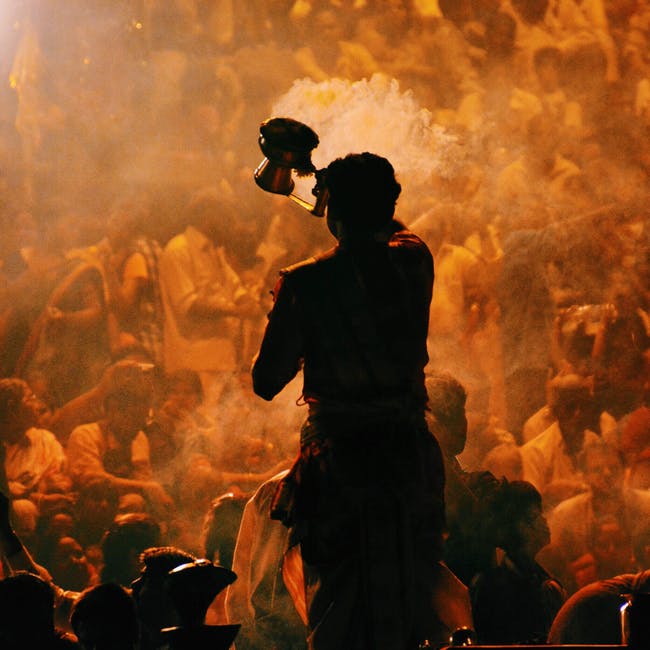Hindutva: A Secular and Nationalistic Ideology – Part II
Huda Mohamed Shareef 9 May 2022
In the first part of the essay on Hindutva series, a small overview of the ideology of Hindutva was given with an emphasis on its aspect of nationalism. In this part, the author seeks to elaborate further on nationalism and argue why Hindutva is a also secular project.
Nationalism is the religion of Hindutva
After studying the emergence of the phenomenon of nationalism in Europe for decades, political scientist Carlton J. H Hayes in his book, Nationalism, A religion writes that nationalism emerged as a new ‘religion’ after the spiritual void created from non-adherence to traditional religion[i]. In the case of Europe, it was the failure of Christianity. In Indian context, the spiritual void is created due to the failure of Hindu religion. Hinduism cannot be even considered any longer as a religion in the liberal understanding of the term. Hindu scriptures including Vedas although divine in origin , at present, is largely fabricated and outdated. Most of the Hindu priests also do not believe that Vedas are divinely inspired and claim it is written by sages or rishis. Given the negation of ‘divinity’ of Hindu religious texts even by the Hindutva adherent priest class, it is no surprise that they can’t establish Hindu Rashtra based on Vedas or Upanishads. There is a spiritual void among Hindus which Hinduism fails to resolve as it has been for centuries relegated and downgraded by Hindus themselves into a materialistic manifestation of cultural and traditional aspect. Nationalism is however able to fill that void.
The Rashtriya Swayam Sevak Sangh (RSS) was created with a mission of nationalism and since Hinduism is the historically dominant culture of Indian subcontinent, nationalism in India is associated with Hindu culture. J.H Hayes argues that: when national emotion is fused with religious emotion, Nationalism itself becomes a religion or a substitute for religion. Hindutva is the nationalistic substitute emerged from a vanishing divine-origin faith constructed in the colonial period by British to be known as ‘Hinduism’.
Nationalism, not spiritual awakening
The work of RSS as described by Hindutva idealogue M.S. Golwalkar makes clear the vision and mission of this organization and ideology. Describing the functions of RSS, Golwalkar claims “RSS has been making determined efforts to inculcate in them (Hindus) burning devotion for Bharat and its national ethos, to make people realise that service to the Nation is the supreme end”[ii] This mostly explains to why Hindutva supporters and proponents often accuse Muslims or those who criticize Hindutva as ‘Anti National’ and not ‘Anti Hindu’.
Hindutva is less concerned if ‘nationalism’ is a Vedic ideology or whether it is Indic in origin. Golwalkar’s desperate attempts to bring a connection for nationalism with Hindu scriptures or history in his work ‘We or our Nationhood defined’ is idiotic and devoid of intellectual honesty.
Golwalkar’s writings on Nationalism which is also the idea of Nationalism among majority of Non-Muslim Indians irrespective of the political affiliation today can be best attested to Prof. Hayes’ thesis. Hindutva nationalism has invented a new deity for this modern era religion and considers Hindu society as the God. This is evident in the works of Golwalkar, wherein he claims;
‘Our society has been described as our living form of God. Let us adopt that form as our chosen deity and resolve to serve it all through our life as a token of our indebtedness.’[iii]
God is identified as the Hindu society, hence justifying a spiritual connection and devotion to the Nation, instead of channeling devotion to the real God. It is worth mentioning here that Hindu scriptures also retains ambiguity regarding the idea of God which is even described as ‘nothing’! These existing dilemma regarding the core aspects are seen in the works of many Hindutva intellectuals including Savarkar and Golwalkar. Lack of national consciousness is identified as the reason for subjugation of Hindus at the hands of British colonialists and Central Asian conquerors.[iv] The mission of RSS is described by Golwalkar as:
‘The day-to-day inculcation of qualities such as the spirit of sacrifice, discipline and national devotion that go to build a resurgent and unhinged national life’(is the aims of RSS)[v]. Instilling ‘faith’ in nationalism is mentioned as one of the objectives of RSS. ‘In consonance with the ideal of national reorganization, the process of daily samskars inspired by the spirit of rashtra devo bhava (be devotee to Nation-God) is carried in the shakha (organization)’[vi].
Hindutva is a secular project
It is worth noting that Hindutva conception of Hindu state is thus ‘secular’- i.e., as an ideology not derived from scriptures, Hindutva shares every aspect with the liberal far right around the world. The crises in Conceptualizing Hindutva ideologies are a constant occurrence within the thought process of its intellectuals. Proposed as a Hindu solution against Western isms, Hindutva fails to find any reference of European ideologies in Hindu traditions it has adopted. Acknowledging Hindutva as a secular project, Golwalkar states,
“The function of the state according to Hindu concept is limited to secular matters only”[vii]
This is a true statement resulting from an understanding of Hindu scriptures. Unlike Islam, which has fundamental laws and principles to govern all arena of human life, Hinduism lacks any such fundamentals, let alone a governance model or political concept. This is a frustrating factor for majority of Hindus and one of the major reasons for dangerous levels for envy against Islam and Muslims.
Golwalkar further argues in support of secularism that, ‘if by secularism is meant that the state should not be tagged to any particular creed and that all faiths should be equally respected, then this again would be another expression for Hindu tradition.’[viii] Although this statement is opposite of present day Hindutva politics which is aligned with seemingly one particular Faith, Hindu right wing’s embrace of Hindu cultural symbolism and traditions are a reactionary attempt to satiate the increasing insecurity exacerbated by identity crises among Hindus.
It is precisely because of their admittance regarding the inefficiency of Hindutva to conceptualize or derive a political ideology based on Hindu scriptures, political parties embodying the ideology including BJP (Bhartiya Janata Party) are gaining traction among secularists, atheists or even communists. They rightly claim that Hindutva is secular to the disillusionment of many Muslims, majority of who are yet to grasp the concept of Secularism. Secularism like any of the ideologies or concepts derived based on liberal philosophy of life, has no definite definition. Scientists and Scholars give their own interpretation and different understanding of the meaning of secularism. Whatever variations each definition have, the most principal aspect is its negation of revealed truth and rejection of divine laws. Thus, in the context of India, Hindu right wing parties can be aptly categorized as secular parties. Moreover, BJP has members in its party, people from all religious communities including Muslims.
Left liberal critique of RSS and BJP as a non-secular ideology rings hollow among the majority right-wing intellectuals and public. This is not to give credibility to the arguments of right-wing liberals, but to discredit the fallacious and flawed understanding of left-wing liberals who only differ with their right-wing counterparts in the definition of secularism. This is a normal phenomenon given the difference of opinion regarding its definition even among intellectuals and academia.
Hindutva’s understanding and definition (or failure to define?) of Hindu Dharma is yet another example of its non-scriptural adherence and secular-nationalism. Lynching’s and call for rape against Muslim women are justified by Hindu priests as a necessity to protect ‘Hindu Dharma’. But to the detriment of Hindutva adherents, Hindu scriptures also have no clear fundamental features to describe or define ‘Dharma’. However, packaging it with regards to nationalism absolves the problem and serves the purpose which is what Hindutva intellectuals did. Dharma is today understood as any means (good or evil) to achieve Hindu national consciousness and unification. Fringe elements within the Hindu society among its priests or common folks who do not agree with the Hindutva understanding of ‘Dharma’ and opposes their evil means are considered a traitor and terrorist sympathiser!
This dangerous combination of secularism and nationalism is the evidence to conclude Hindutva as a fascist ideology. Hindutva undoubtedly shares the most features with Nazism of 20th century Europe and Indian polity today has uncanny similarities to the 1930’s Germany.
References:
[i] Hayes, Carlton J.H, (1960) Nationalism: A religion, New York: The Macmillan company, p.15
[ii] Bunch of thoughts, Third edition p. 143-144.
[iii] Ibid, p.166
[iv] Golwalkar identifies the reason for defeats and slave mentality of Hindus due to absence of national consciousness, Bunch of thoughts, p.170
[v] Ibid., p.303
[vi] Ibid., p.306
[vii] Ibid., p. 144
[viii]Ibid., p.258







